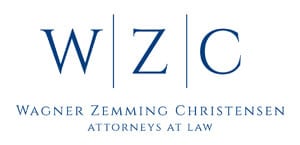Seven Common Grounds for Lease Litigation Against a Landlord

As a business owner, you carefully choose your commercial property to create a foundation for success. But what happens when your landlord becomes more of a hindrance than a helper? You might be facing lease litigation, and you need to understand your rights in this situation.
In California, commercial lease litigation is common, and there are several grounds upon which tenants can build their case. The following are seven reasons why commercial tenants take legal action against their landlords.
Breach of Lease Agreement
Landlords must adhere to the terms of a lease agreement the same way their tenants must. If a landlord does not meet their obligations, they’ve committed a breach of the lease agreement. Anything from the landlord’s failure to maintain the premises according to the terms of the lease to not providing the services outlined in the lease could constitute a breach of the lease contract.
Unlawful Eviction
As a tenant, one of your rights is protection against unlawful eviction. Even though it’s easy to evict commercial tenants in California, the landlord still has to abide by the rules. You must pay the full amount of rent on time, or the landlord can evict you. If you withhold payment because of another clause in the lease, the landlord could still serve you a 3-day notice to pay and evict you if you don’t. However, if a landlord attempts to evict you without proper notice or without a valid reason as defined in the lease, you could have grounds.
Inadequate Tenant Improvements
If your lease included specifics about improvements that were to be made to the unit before you moved in, and the landlord either failed to complete them as required or the work wasn’t done to Code, you could have grounds for litigation. The lease should have included diagrams of what was to be done and lists of the tasks to be completed. The work should have been done to Code, and licensed contractors should have performed the work with appropriate permits. If any of the obligations specified in the contract weren’t met, you could sue.
Unreasonable Rent Increases
While your landlord can increase your rent, California law restricts them from doing so without proper notice and under certain conditions. For instance, a commercial landlord must give their tenant 30 or 60 days’ notice of a rent increase, depending on your circumstances. If that doesn’t happen, legal action could be your best recourse.
Violation of Quiet Enjoyment
The law gives tenants the right to quiet enjoyment, meaning your landlord cannot interfere with your ability to use and enjoy your leased premises. If, for example, your landlord renovates the suite next door to yours during business hours and there was no provision in the lease allowing it, you could have a case if those disturbances prevent you from conducting your business in peace.
Failure to Return Your Security Deposit
Landlords have an obligation to return security deposits, as they can only hold your deposit or make deductions for unpaid rent or repairs beyond normal wear and tear. You could have a case if your landlord has not returned your security deposit or provided a detailed account of the deductions within twenty-one days.
Discrimination
Discrimination against both commercial and residential tenants is illegal under federal and state laws. It’s an actionable offense if your landlord treats you differently due to your race, color, national origin, religion, sex, familial status, or disability.
Contact Our California Landlord Litigation Attorneys Today
If you’re facing any of these issues, you are not alone. Remember, lease litigation is often complex, so it’s always a smart idea to consult a Riverside real estate litigation attorney who can help you through the process and safeguard your rights.
You deserve a business environment conducive to your success, so don’t let a problematic landlord stand in your way. The team at Wagner Zemming Christensen, LLP, can help you seek the fair treatment you deserve from your landlord. Call us at 951-686-4800 or visit our contact page for a consultation.
